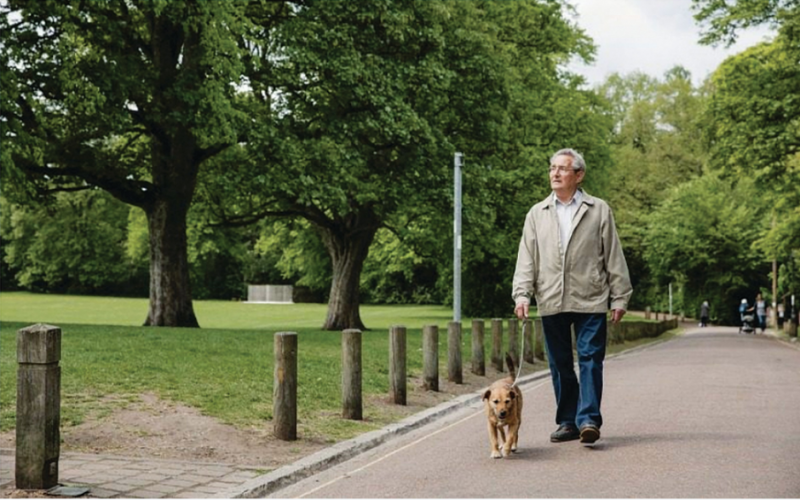Preparing for a Spine and Brain Surgery
Older adults who ‘train’ for a major operation spend less time in the hospital

Older adults who “train” for a major operation by exercising, eating a healthy diet, and practising stress reduction techniques preoperatively have shorter hospital stays and are more likely to return to their own homes afterward rather than another facility, compared with similar patients who do not participate in preoperative rehabilitation, according to research findings.
The new study, which appears in the Journal of the American College of Surgeons website in advance of print, evaluated a home-based programme of preoperative rehabilitation – called prehabilitation – for Michigan Medicare beneficiaries.
“Prehabilitation is good for patients, providers, and payers,” said study co-author Michael Englesbe, a liver transplant surgeon at the University of Michigan, Ann Arbor. “We believe every patient should train for a major operation. It’s like running a 5K race: You have to prepare.”
Involving physical and lifestyle changes, prehabilitation, or “prehab,” optimises a patient’s well-being and ability to withstand the stress of undergoing an operation, Dr Englesbe said. Past studies show that prehabilitation lowers the rate of postoperative complications and speeds the patient’s return to their normal functioning, among other advantages.
“Prehab has been gaining momentum over the past 10 years. More surgeons and other clinicians are appreciating its benefits,” Dr Englesbe said. “However, the feasibility and value of broad implementation of prehabilitation outside the research environment were unknown.”
For this new study researchers tested the real-world effectiveness and cost savings of prehabilitation. Patients underwent diverse cardiothoracic (chest/heart) and abdominal operations at 21 hospitals in Michigan that participated in a statewide prehabilitation programme called the Michigan Surgical & Health Optimisation Program (MSHOP). Patients’ surgeons referred them to MSHOP if they were at high risk of postoperative complications, Dr Englesbe, programme co-developer and director, said.
MSHOP involved a home-based walking programme in which surgical patients tracked their steps using a pedometer and received daily reminders and feedback through phone, email, or text messages. Programme participants received educational materials on nutrition, relaxation techniques, and smoking cessation as well. They also practised using an incentive spirometer.
Included in the study were 523 Medicare patients who participated in MSHOP for at least one week before an inpatient operation and filed Medicare claims between 2014 and 2017, according to the article. For comparison, the researchers used Medicare claims data during the same period to identify 1,046 matched controls: patients with similar demographic characteristics and coexisting illnesses who had the same operation at the same hospital but did not take part in prehabilitation. The average age of patients and controls was 70 years.
Participation in MSHOP ranged from 11 to 33 days, the researchers reported. Of the participants, 62 per cent were reportedly “engaged” in the prehabilitation programme, defined as recording step counts three or more times per week for most of the program. Thirty-nine patients (7.5 per cent) asked to be removed from the programme, but they remained in the statistical data analysis. For both groups, the study authors analysed data for the hospitalisation and 90 days afterward.
Participation in prehabilitation was significantly associated with several improved outcomes that are important to patients or insurers, according to the researchers:
The hospital length of stay was shorter by one day, with a median of six days for participating patients versus seven days for controls, who received no prehabilitation.
Programme participants were more likely to be discharged from the hospital to home: 65.6 per cent versus 57 per cent of controls.
Medicare paid nearly $3,200 less in total payments for both hospital and posthospital care (what Medicare calls an “episode of care”) for patients who underwent prehabilitation than for controls.
Insurance payments were especially lower among patients for posthospital care, including skilled nursing facility.
“Every patient scheduled for a major operation, not just those at high risk, should ask their surgeon for a prehabilitation programme,” Dr Englesbe recommended.
Although the study did not evaluate patient satisfaction with prehabilitation, Dr Englesbe said patients at his medical centre who completed MSHOP described their surgical experience positively, using words such as “empowering.” Some patients requested MSHOP when they required another operation, he said.
Dr Prem Pillay, a Singapore Spine and Nerve Specialist agrees that Pre hab is useful for older patients and even younger patients with chronic illnesses to improve their overall fitness. He also recommends that his patients eat healthy preferably a plant based diet, sleep 8 hours a day, do light daily exercise, do some calming activities including meditation, and hydrate well. This should also be continued during the post surgery recovery period once patients are sent home, explains Dr Prem.
Source: American College of Surgeons
Reference:
Charles A. Mouch and others. Statewide Prehabilitation Program and Episode Payment in Medicare Beneficiaries, Journal of the American College of Surgeons (2019). DOI: 10.1016/j.jamcollsurg.2019.10.014
Protocols of the Singapore Brain Spine Nerves Center, and the Neuro Spine and Pain Center Singapore.